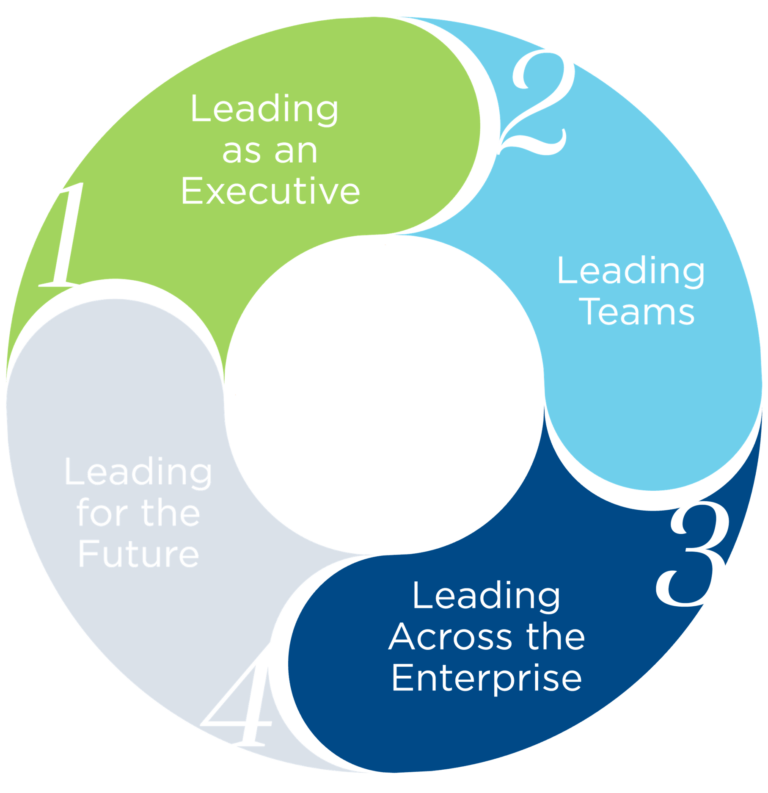Your leadership development is not just a strategic imperative; it is a gateway to personal and professional growth. Whether you are an individual contributor, a manager, or a seasoned executive, honing specific competencies is essential for unlocking your potential and driving our collective success. Let’s explore why leadership development matters at every level and discover the distinct skills that will empower you on your journey. By developing these competencies, you not only enhance your own capabilities but also contribute to the resilience, agility, and success of our entire organization.
Why Excellence in Leadership Development Matters at All Levels
Leadership isn’t confined to the C-suite; it permeates every corner of an organization. When individuals at all levels develop their leadership skills, they create a learning organization that is resilient and adaptable. When individuals see a clear path of what skills are needed in their current role and the skills needed for advancement, they’re more likely to want to develop those and stay with the organization. Teams thrive when everyone contributes as a leader, navigating challenges and seizing opportunities. Effective leaders drive strategy execution. Whether you’re an individual contributor or a seasoned executive, understanding the big picture and aligning your efforts with organizational goals is critical. Leadership development ensures that everyone contributes to our collective success and fosters excellence in leadership.

Competencies for Achieving Excellence in Leadership at Each Level
Leading Yourself
At the foundational level, it is crucial for individuals to develop competencies that enable effective self-leadership. Continuous learning and exhibiting resiliency are essential for navigating challenges and staying updated with industry trends. Emotional intelligence helps in understanding and managing one’s own emotions as well as those of others, fostering strong relationships and effective teamwork. Self-awareness is key to recognizing personal strengths and areas for improvement, which is critical for ongoing development. Fostering accountability ensures that individuals take responsibility for their actions and outcomes. Planning and organizing skills are vital for managing time and resources efficiently. Building collaborative partnerships allows individuals to work effectively with others, creating a supportive and productive work environment. These competencies form the bedrock of personal leadership, setting the stage for future growth and excellence in leadership.
Leading Teams
As a team leader, achieving business outcomes and being a change agent are essential for driving team performance. The ability to influence others and manage performance ensures that team members are aligned with organizational goals and working effectively. Building strong teams and developing others are critical for creating a collaborative and growth-oriented environment. Managing conflict and delivering results are necessary for maintaining team harmony and achieving targets, ensuring that the team remains productive and focused on its objectives. These skills are vital for fostering excellence in leadership within teams.
Leading Across the Enterprise
At this level, decision-making and navigating the organization are crucial for effectively leading cross-functional initiatives. Championing inclusivity ensures diverse perspectives are valued and integrated into decision-making processes. Demonstrating an enterprise perspective helps leaders align departmental goals with the broader organizational vision. Driving strategy, solving problems, and taking risks are essential for fostering innovation and achieving long-term success. These competencies enable leaders to think broadly and make strategic decisions that benefit the entire organization, driving excellence in leadership across the enterprise.
Leading for the Future
Leading for the future requires an entrepreneurial spirit and a commitment to innovation. Thinking systematically and leveraging advanced analytics and technology enable leaders to make informed decisions. Being market-focused and possessing a strategic mindset are crucial for identifying and capitalizing on emerging opportunities. Visionary thinking and adaptability ensure that leaders can navigate and thrive in an ever-changing business landscape. These competencies prepare leaders to anticipate future trends and position the organization for sustained success, ensuring excellence in leadership for the future.
Mastering Competencies: The Path to Excellence in Leadership
Each competency you develop at your current level prepares you for the next. Embrace learning opportunities, seek mentorship, and apply your skills in real-world scenarios. Remember, leadership isn’t a destination; it’s a continuous journey. As you ascend, inspire others to follow suit. Together, we unlock excellence in leadership.
Leadership development is a continuous journey that benefits individuals and the entire organization. By mastering key competencies at each stage—leading yourself, leading teams, leading across the enterprise, and leading for the future—you not only enhance your own abilities but also contribute to a resilient and adaptable organization. These competencies, combined with a commitment to continuous learning, strategic alignment, self-awareness, and accountability, prepare you for the challenges and opportunities that lie ahead. As we cultivate these skills at every level, we create a thriving, forward-thinking organization where everyone has the potential to lead. Unlock your leadership potential and drive collective success into the future, achieving excellence in leadership.


